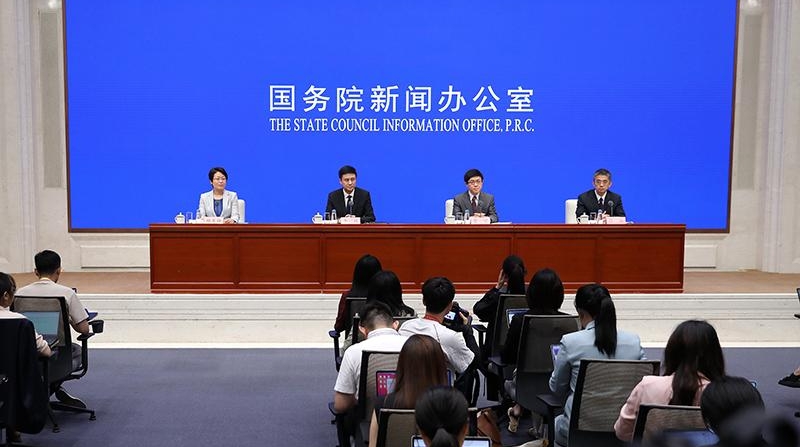Securities Times:
Given that the global economic situation remains complex and volatile, with many uncertainties in the external environment, how should we view the outlook for China's foreign exchange market in the second half of the year? Thank you.
Li Bin:
Thank you for your question. Under open conditions, a country's foreign exchange market is influenced by a range of internal and external factors. Overall, high-quality economic development, steady progress in opening up, and the growing resilience of the foreign exchange market are three favorable factors that will help China's foreign exchange market continue to operate smoothly. These conditions also mean the yuan's exchange rate can remain basically stable at a reasonable and balanced level.
First, the fundamentals of the Chinese economy are solid, providing a firm foundation for the stable operation of the foreign exchange market. In the first half of this year, China's GDP grew 5.3% year on year, with further improvements in the economic structure. In the second quarter, domestic demand, including final consumption and gross capital formation, contributed 77% to China's economic growth, up 17 percentage points from the previous quarter. China regards expanding domestic demand as a long-term strategy and continues to promote the integrated development of technological and industrial innovation. The domestic economy has maintained steady improvement, which will provide solid support for the stable operation of the foreign exchange market.
Second, China is continuing to expand high-standard opening up, and a stable balance of payments will be maintained. China remains committed to upholding free trade and multilateralism, with economic and trading partners in more than 150 countries and regions worldwide. At the same time, high-standard institutional opening up will advance steadily, and two-way investment and financing channels in the financial market will continue to expand. This will help promote the coordinated development of foreign trade and cross-border investment and facilitate balanced cross-border capital flows.
Third, China's foreign exchange market has become more resilient, with a stronger capacity to withstand external shocks. At the macro level, the market-based mechanism for the yuan's exchange rate has been further improved, with greater flexibility that allows external pressures to be released in a timely manner and helps maintain supply-demand balance. At the micro level, companies are increasingly aware of maintaining exchange rate risk neutrality, and cross-border transactions in yuan have grown steadily. In the first half of the year, the ratio of corporate foreign exchange hedging and the share of cross-border yuan receipts and payments under trade in goods both reached about 30%, marking record highs. Lower foreign exchange risk exposure helps the market maintain rational trading. At the policy level, the foreign exchange market has accumulated considerable experience in counter-cyclical adjustment and has a wide range of policy tools in reserve. Regulatory effectiveness in the foreign exchange sector has steadily improved, and the ability to prevent and mitigate external shocks has continued to strengthen. We have the confidence and capability to maintain the stable operation of the foreign exchange market.
That's all from me for this question. Thank you.
Xing Huina:
Today's briefing is hereby concluded. Thank you to Mr. Li, Mr. Jia and Mr. Xiao, and thank you to all the media for participating. Goodbye, everyone.
Translated and edited by Liu Sitong, Xiang Bin, Xu Kailin, Zhang Tingting, Liu Caiyi, Wang Yanfang, Zhang Junmian, Gong Yingchun, Ma Yujia, Yuan Fang, Fan Junmei, David Ball, and Jay Birbeck. In case of any discrepancy between the English and Chinese texts, the Chinese version is deemed to prevail.


 Share:
Share: 




 京公网安备 11010802027341号
京公网安备 11010802027341号